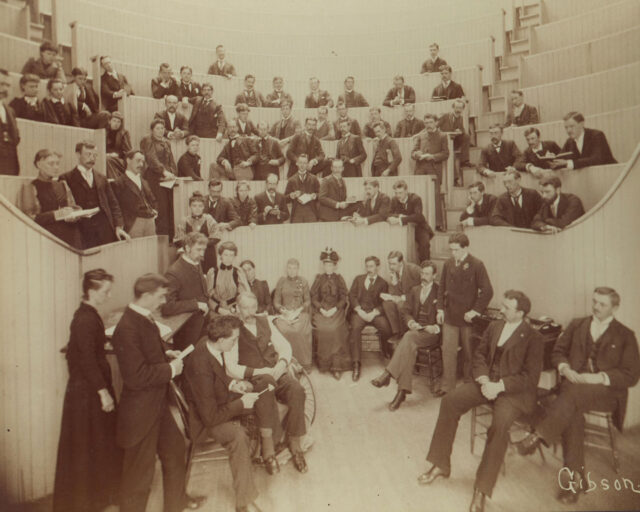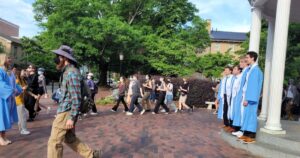The legacy of the University of Michigan Medical School stretches back to October 1850, when its first class of 95 students and five faculty members entered their new building. Little could they have imagined the impact their institution would have over the coming decades.
From humble beginnings, the Michigan Medical School has evolved into a global leader in biomedical education and research. For 175 years, it has contributed significantly to medical science and clinical training, aligning with U-M Regent Zina Pitcher’s 1848 vision of a medical school “worthy of imitation.”
Throughout the upcoming year, Michigan Medicine will honor its storied past and its ongoing commitment to medical excellence through a variety of events and activities.

Two anniversaries in one year
The Medical School’s 175th anniversary coincides with the centennial of “Old Main,” a University Hospital that served from 1925 to 1986. This fall, the D. Dan and Betty Kahn Health Care Pavilion will open on the site of the former Old Main.
“Our 175th anniversary comes at a time of great change for our world, our nation, our university and Michigan Medicine,” stated Marschall Runge, dean of the Medical School and CEO of Michigan Medicine. “Sharing and learning from our history can inspire us all, including a new generation of innovators, scholars and medical professionals.”



The anniversary events will include the launch of a new website featuring stories, videos, and an online store for anniversary apparel. Michigan Medicine will also engage the community through online and in-person events, exhibitions, and posts on social media using #michmed175.
Reflecting on all aspects of history
The anniversary encourages reflection on both the Medical School’s achievements and its historical shortcomings. Joel Howell, an emeritus professor of medicine and history at U-M, noted the importance of learning from the past, stating, “For 175 years the U-M Medical School has led the way… While we take pride in our achievements, it is also important to remember that there were times when we could have done better.”


Lisa Harris, director of the new Center for History, Humanities, Arts, and Social Sciences in Medicine, emphasized the importance of understanding historical harms as ongoing issues. She remarked, “Sometimes learning about history makes us feel like we are different from our predecessors, when really we ought to consider how we are the same.”





